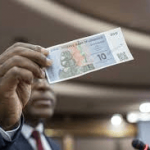Nigeria’s exchange rate saw a remarkable surge in January 2025, appreciating by N63.72 to close at N1,474.78 per dollar on January 31 at the Nigerian Foreign Exchange Market. This 4.14% increase marks the highest value of the naira in seven months, surpassing the previous peak of N1,473.88/$ in June 2024.
The surge in the naira’s value is largely attributed to the Central Bank of Nigeria’s (CBN) recent policy initiatives aimed at strengthening the currency. Data from the FMDQ Securities Exchange Limited and the CBN reveal that the naira’s steady rise through the month was supported by measures designed to boost market confidence and ensure better market dynamics.
The CBN’s policies have been critical in pushing the currency to its highest level in months, with authorised currency dealers quoting the dollar between N1,447.50/$ and N1,495.01/$ during the month. Notably, the naira began January 2025 at N1,538.50/$ on January 2 and fluctuated over the course of the month, reaching its peak at N1,560/$ on January 16. However, the currency experienced sustained appreciation in the latter half of the month, closing at N1,474.78/$ by January 31.
Central to this strengthening is the Electronic Foreign Exchange Matching System, launched in December 2024. The platform, powered by Bloomberg’s BMatch system, allows authorised dealers to place anonymous orders into a central limit order book, promoting transparency and efficient price discovery. This has reduced market distortions and enhanced the CBN’s ability to manage exchange rate fluctuations.
Another vital factor in the naira’s recent gains is the launch of the Nigeria Foreign Exchange Code on January 28, 2025. The FX Code introduces a set of enforceable rules aimed at improving compliance and governance in the foreign exchange market. According to CBN Governor Olayemi Cardoso, violations of the code will be met with penalties and administrative actions, reinforcing ethical conduct among market participants. The FX Code aligns Nigeria’s foreign exchange operations with global best practices, further boosting investor confidence.
The naira also appreciated in the parallel market, closing at N1,610/$ on January 30, compared to N1,630/$ the previous day, reflecting a N20 increase within just one day. This shift in the parallel market mirrors the impact of CBN’s monetary measures.
While the naira has shown strong performance, the country’s foreign exchange reserves saw a sharp decline, dropping by $1.11bn in January 2025. Reserves stood at $40.88bn on January 2 but fell to $39.77bn by January 30, reflecting a 2.72% drop. This decline follows CBN interventions in the forex market and external debt servicing obligations.
The drop in reserves, while significant, suggests that the CBN may have used part of its FX stockpile to stabilise the naira and manage liquidity in the market. The reserve level has now dipped below $40bn for the first time in months, marking a three-month low. This sustained drawdown points to the heightened demand for foreign exchange and the CBN’s ongoing efforts to maintain stability despite global financial pressures.
Although the naira’s impressive gain in January 2025 is a positive development, the decline in reserves highlights the challenges the CBN faces in managing both currency appreciation and the depletion of reserves. With exchange rate stability and liquidity being key priorities, the CBN’s ongoing interventions will continue to play a crucial role in the months ahead. However, the long-term sustainability of these efforts will depend on maintaining a balance between policy measures, market conditions, and foreign exchange reserves.










